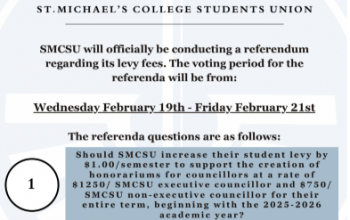Photo Credit: Sam Mcghee, Unsplash
The disproportionate media coverage of global atrocities is primarily driven by an “us” versus “them” mentality.
Ethan Chan, Senior Staff Writer
BREAKING NEWS: The information you’re currently consuming is selected with a singular motive. The consequences of this selection involve prioritizing certain stories while disregarding others, all in the pursuit of financial gain for prosperous corporations and even wealthier CEOs. While this news may align with Western values, it becomes fragmented and disjointed when addressing atrocities in the Global South. This discrepancy is evident in the coverage of events like the Ukraine–Russia War and the Israel–Palestine War. According to The New Humanitarian, the coverage of the Ukraine–Russia conflict emphasizes Ukrainian heroism and the defense of democracy. In contrast, the coverage of the Israeli–Palestine conflict is notably limited due to a lack of comprehensive information. How is it possible to lack information in our digital age?
Although other theories suggest that Western atrocities receive more attention than those from the Global South due to differences in race or wealth, I propose a simpler explanation. Disproportionate media coverage of atrocities in the West, as compared to the Global South, can be attributed to the prevailing “us” versus “them” mentality. This disproportionality exists because we in the West tend to view anyone outside our realm as “different” from us. Discrimination, whether based on financial, racial, gender, religious, or any other factors, ultimately stems from the irrational notion that “we” are superior to “them.”
For instance, The New Humanitarian highlights some stark differences in Western media coverage. While both Ukraine and Israel-Palestine are embroiled in conflicts, Ukraine is celebrated as a heroic democratic state deserving of praise, whereas the Israel-Palestine conflict can be portrayed as terrorism, and its refugees are sometimes unfairly characterized as uncivilized compared to those from Ukraine. This discrepancy reveals a clear racial bias, as Western media employs subtly prejudiced undertones to distinguish between victims of war, ultimately positioning the West as the “us” group, with all Westerners developing a sense of nationalism or belonging to the same group.
According to journalist Reema Saleh, objectivity is highly challenging when media outlets face financial pressures from multinational corporations like CNN. Here, the term “CNN Effect” takes shape. The “CNN Effect” stems from the media network CNN – a global news outlet that pushes news stories to everyone at any time. While 24/7 news access looks good on the surface, it comes with various cases of selective reporting, inevitably creating a lack of accountability due to the potential of poorer television ratings and incomplete information. Ultimately, who decides what is most important? The “us” group – the Western conglomerate media outlets and the viewers who tune in.
There is no point in promoting the news if it means you single out specific stories. While I understand economic pressures, timelines, and the sheer volume of news present substantial challenges, I believe equal coverage is an attainable standard. In other words, the idea of an “us” and “them” group is stupid; we are all human and face problems. If there are major global conflicts, let us discuss them equally because human lives are at stake. Although I know I will never convince a media company to cover all news equally, balanced reporting that ensures all parties have a voice in fostering a more nuanced understanding of global issues is critical to removing the media’s disproportionate coverage of atrocities. Through this, we move closer to equality and cultural acceptance with every story shared.




